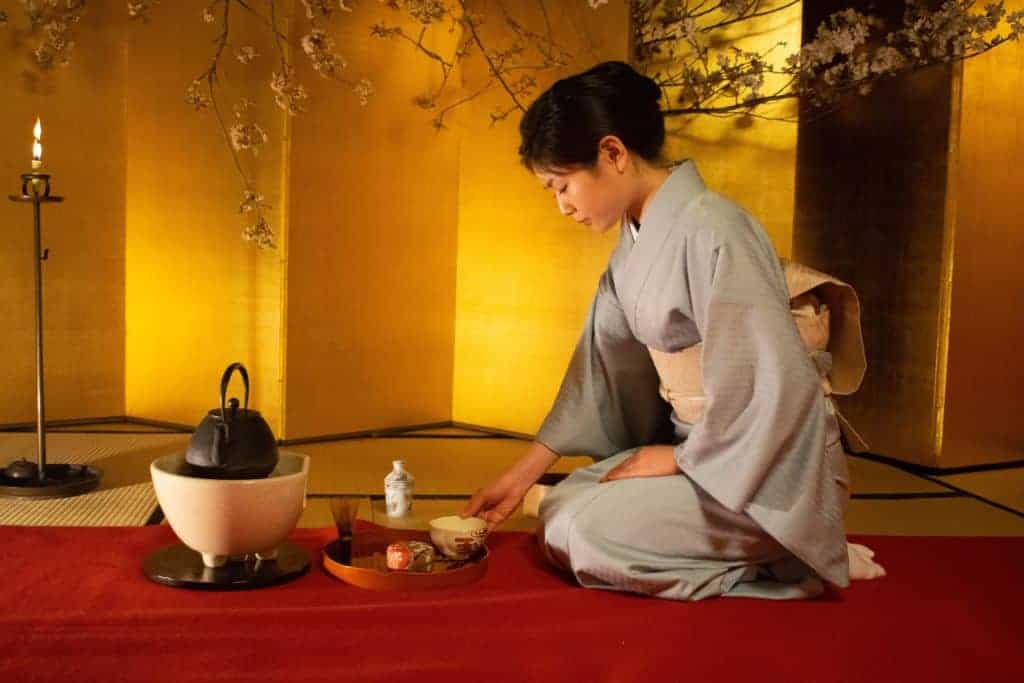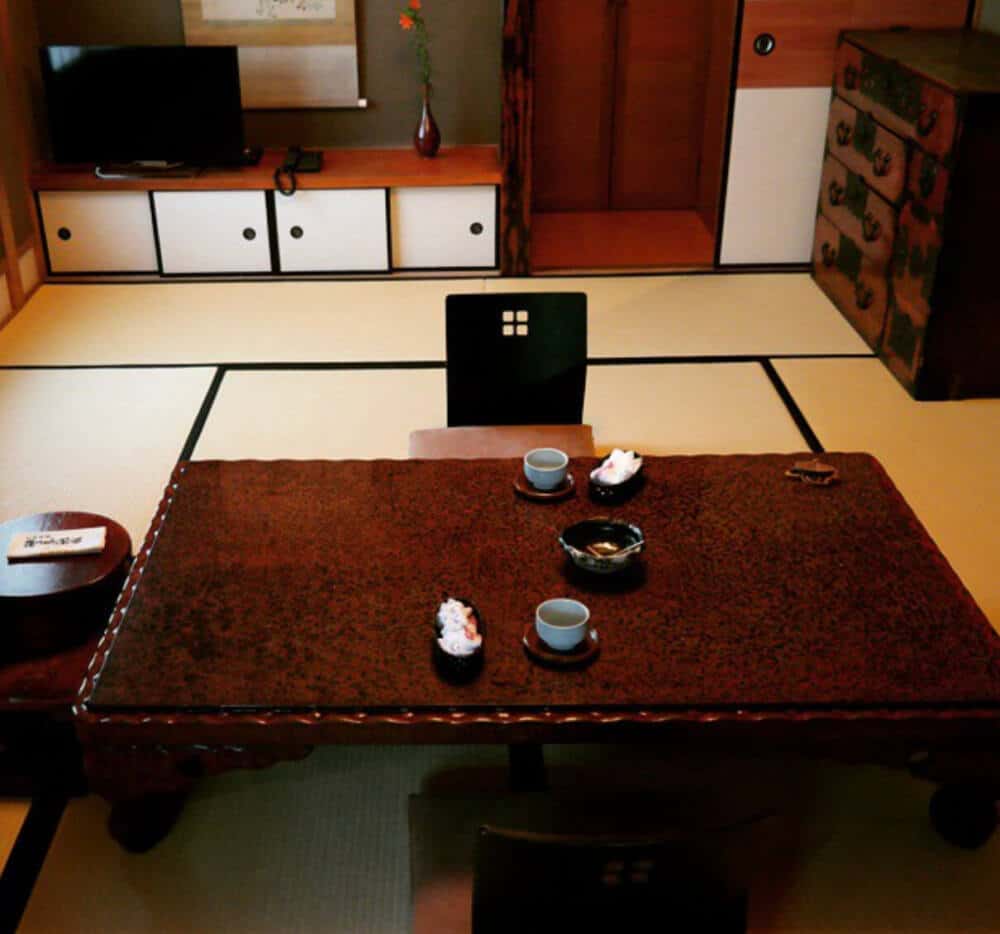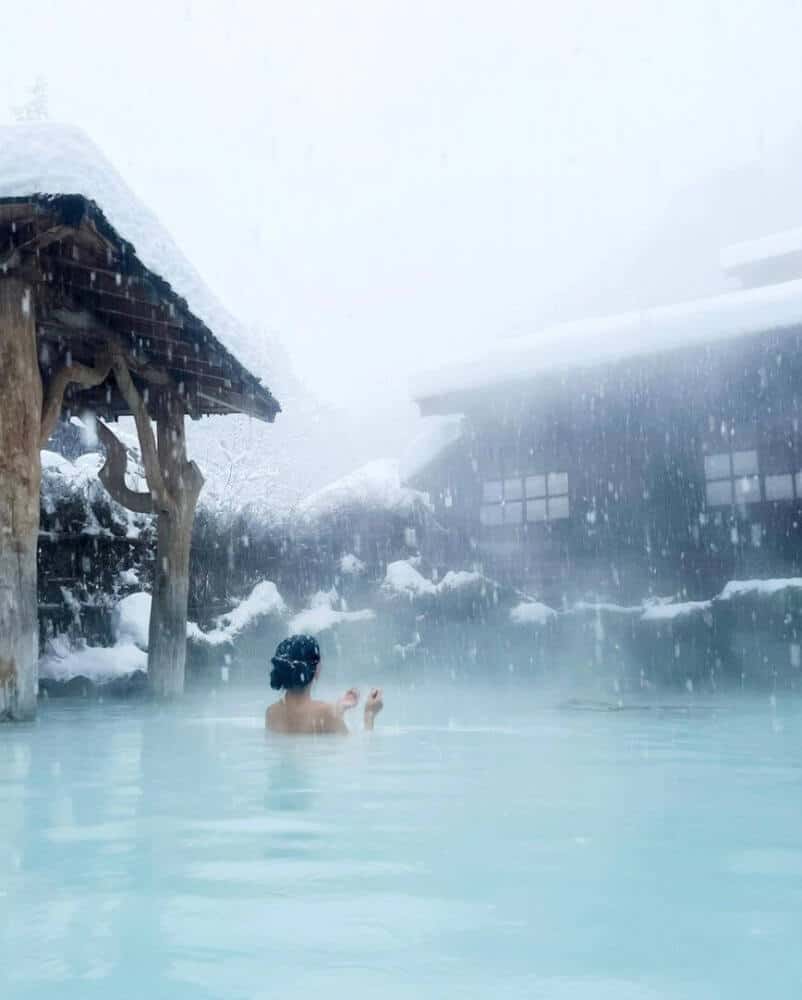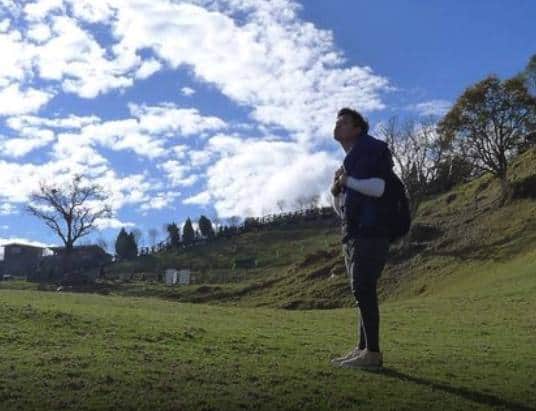Can’t decide if you want to stay at a traditional Ryokan or hotel during your Japan visit? Well, here’s a rundown of Japanese ryokans vs hotels so you can understand how it’s different from each other before you make a choice!
A Japanese ryokan is a traditional Japanese-style hotel room with tatami floors and Japanese futon beds. The architecture also leans towards the traditional Japanese style of design whereas hotels in Japan reflect the western culture and design.
The way you’d interact with the staff, the meals you eat, and your entire experience at a ryokan is extremely different than it would if you were staying at a hotel.
So let’s dive deeper into Japanese ryokans vs hotels and figure out which is the best option for you between the two!
- Japanese Ryokans Vs Hotels
- What is the biggest difference between Japanese ryokan and hotel?
- Staying In Japanese Ryokans Vs Hotels
- Difference in Customer Service Style In Ryokan Vs Hotel in Japan
- The Difference in Bedding in Japanese Ryokans and Hotels
- The Difference in Bathrooms in Japanese ryokans vs Hotels
- Difference in Origin Between Japanese Ryokans and Hotels
- Are ryokans cheaper than hotels?
- Which one is better for you – Ryokan or Hotel?
- Difference between Japanese Ryokan And Hotel: FAQs
Page Contents
Japanese Ryokans Vs Hotels
What is the biggest difference between Japanese ryokan and hotel?

The biggest difference between a traditional Japanese ryokan and a hotel is that the Hotels can be big westernized structures whereas ryokans are small, humble places with Futon or Japanese tatami room type. At ryokans you also get two meals covered along with one night’s stay. Whereas in hotels you have to pay extra for room service. Some big hotels may offer complimentary breakfast.
Japanese Ryokans and Hotels Compared
| Traditional Japanese Ryokan | Hotels |
| Traditional Japanese style and design | Western style and design |
| Cultural experience | Just a place of accommodation |
| Tatami floors | No particular flooring |
| Communal onsen | No onsen but may have a swimming pool |
| Bit more expensive than hotel room | Comparatively cheaper |
| May or may not offer meals | Almost always has a room service and an in-house restaurant |
| Traditional Japanese meals | Variety of cuisine maybe available |
| Japanese futon beds for bedding | Western-style beds |
| Minimal/low furniture | Western furniture design, room equipped with furniture typically seen in hotel rooms |
| Best for those looking to unwind, relax, and not explore much | Best for travelers and tourists that would like to explore the city |
Staying In Japanese Ryokans Vs Hotels

Staying at a ryokan in Japan is culturally enriching and oh-so-relaxing! So, my suggestion would be to make your ryokan booking for the Japanese cultural experience with activities like tea ceremony and not as a mere place to stay. The whole point of staying at a ryokan with an onsen is to relax and unwind.
If you rather explore the city and not stay indoors, you’re better off booking a hotel room so you have a place to sleep at night, store luggage, and take shower.
Difference in Customer Service Style In Ryokan Vs Hotel in Japan
Ryokans in Japan may or may not offer meals or you may have to pay extra for meals depending on the pricing plans that the ryokan offers. The meals offered at a Japanese ryokans is of traditional Japanese cuisine.
Typically the food is served inside the room but some ryokans also have a communal dining area where all the guests can eat and mingle, if they’d like.
Unlike a hotel, you’re not allowed to wear your slippers (even the pair provided by the ryokan staff) inside your room. If you’re eating inside your room at a ryokan, the staff come to your room to serve food. They also explain what each dish is.
The staff at a ryokan visit your room from time to time, to ensure that everything’s in order for you. Unlike in a hotel, where the only way you can contact the staff is through the front desk.
I guess you could think of a ryokan as part of the Japanese cultural experience rather than just a place of accommodation and hotel, well, just a hotel.
Related: For a unique experience, check in to one of these capsule hotels in Tokyo!
The Difference in Bedding in Japanese Ryokans and Hotels
When it comes to choosing between a Japanese Ryokan and a hotel, one of the main differences would be the bedding. This can determine the level of comfort and experience you will have, so it’s an important element to consider, as it can make or break your stay.
Although both styles of accommodation will offer a comfortable rest, the beds available in each one can differ greatly.

At a Japanese Ryokan, you can expect to sleep on a futon mattress – a thin mattress which is made up of a cotton or polyester and foam filling.
Futons are traditionally rolled up and stored during the day and then spread on the floor for sleeping at night. To go a step further and add some extra comfort and warmth, a quilt might be provided.
At a hotel in Japan, you can expect a much more westernized bedding experience. You will typically find a traditional western bed complete with a mattress and bed frame.
Some may provide a large quilt, however, comforters are more commonly provided. Hotels in Japan are well stocked with plenty of pillows which aim to give a more luxurious and comfortable experience.
The Difference in Bathrooms in Japanese ryokans vs Hotels
Another difference between the two would be how to bathe. Japanese Ryokans traditionally provide a pleasant onsen experience, it is one of their main attractions. Hotels on the other hand most often provide western-style bathrooms with a tub or shower.

Difference in Origin Between Japanese Ryokans and Hotels
The origin of the ryokan dates back to the Edo period in Japan from the 17th-19th century, when the structure of a traditional ryokan first began to take form.
The earliest ryokans used during the Edo period were developed for lodging for feudal lords and their samurai armies during their travels.
Commoners often stayed at these ryokans as well and were greeted with a grand reception of grandeur and charm. The same warm hospitality has been present ever since, allowing guests to be welcomed with comforts beyond their expectations.
The original setup of a traditional ryokan typically included grassy courtyards with curved thatched roofs, minimal interiors and paper screens on the windows. In comparison, gas lighting and running water weren’t introduced to the ryokan until the Meiji period in the late 19th century.
Bathhouses were also added to some of the larger ryokans to allow people to bathe in a traditional fashion as well.
Japan introduced hotels in the country in the Edo and Meiji period. In the Edo period, an area known as the “pleasure district” was established in cities like Osaka and Kyoto.
This area contained a variety of businesses related to entertainment, such as teahouses and bathhouses, as well as lodging facilities that provided travelers with places to stay. These establishments were called “ja-tou” or “yado” and attracted many visitors.
Later, during the Meiji period, Japan experienced a dramatic transformation with the industrialization of the economy.
At this time, modern hotels began to appear in urban areas, offering more amenities and features.
These hotels often had multiple stories, elevators, barber shops, restaurants and other services. They were seen as a symbol of modernity and elegance, and attracted many travelers who wanted the convenience and comfort of a luxurious stay.
Are ryokans cheaper than hotels?
Ryokans are usually much cheaper than most hotels in Japan, making them an attractive option for budget-conscious travelers.
One of the biggest advantages of a Ryokan over a hotel is their affordability. In general, Ryokan prices range from ¥5000-¥15,000 per night, depending on the season.
In comparison, a standard hotel room in Japan can cost twice as much as that, starting at around ¥10,000 and going up to ¥20,000 depending on the property.
The price difference can be even greater when booking a room at luxury hotels, which can start at ¥30,000 for a single night.
Plus, those staying at a Ryokan can expect to receive a traditional Japanese breakfast and dinner, making them even more economical.
Ryokans are more than just economical. Their traditional architecture and design make them an idyllic place to get a feel of historic Japan.
Unlike modern hotels, Ryokans boast wooden buildings with tatami mats and futon beds, while some offer onsen and other luxuries like traditional kaiseki meals. Ryokans are havens away from the hustle and bustle of everyday life, where guests can wearily relax in peaceful tranquillity.
In addition, Ryokans are located in some of Japan’s most beautiful natural locations. Many are located in the countryside, allowing visitors to immerse themselves in a more rural atmosphere of Japan.
In contrast, an average hotel in Japan is often located in the big cities. The upshot? Those looking to get the full traditional Japanese culture experience should look no further than a Ryokan.
How To Choose A Ryokan?
Choosing a ryokan stay depends on where in Japan you’d be traveling to and purpose. Kyoto has some of the best ryokans that have stood strong for decades now. Choose to stay at an authentic ryokan, one that was built maybe 100 years ago, if you want to spend time understanding Japanese cultures and traditions. Such ryokans are found in the ancient capital of Japan – Kyoto and Nara.
You can also choose a ryokan with an onsen (hot spring bath) so you can enjoy the hot springs in Japan – these types of ryokans are the most popular ones among the tourists. Different hot springs have different kind of water and remedial effects, so check about that before you make your ryokan booking.
Guide To Japanese Ryokan
Ryokan onsen rules you should know about:
- As soon as you enter the ryokan, you will be given a pair of slippers by the staff for you to wear around the area. You’re NOT allowed to wear these slippers inside your room.
- You’ll be given a yukata (light kimono)as soon as you reach the room, you can comfortably explore your surroundings in your yukata.
- You may or may not have an attached bathroom for your room. Some high-end ryokans have attached bathrooms, and other ryokans have communal bathrooms instead.
- Soaking in a ryokan onsen comes with its own set of rules:
- You can only enter the onsen when completely nude
- Most ryokans have separate onsen for men and women
- Before entering the onsen you have to take a shower at the space allocated with shower. It’s best to bring your own toiletries
- Also make sure you keep a long bath towel and a small towel handy
- You can use the small towel to cover yourself but you cannot dip it in water
- Note that the water temperature may be very hot, so to ensure that you have a good experience, first fill some water in a bucket and pour it over yourself (not with a big splash), or you could even wet your towel and wipe yourself. Make sure you don’t dip the towel directly into the onsen. Collect water in a bucket and then dip the towel
- The large towel is to dry yourself off after you get out of the onsen. Leave the large towel in the changing room
- If you have tattoos, check with the ryokan staff if you’re allowed to enter the onsen before you book a room. Some ryokans strictly prohibit individuals with tattoos to enter the onsen.
- If you have any open wound, if you’re bleeding, have a wound with pus, please do not enter the onsen
- If you’re unwell or sick – please do not enter the onsen.
- At no point should your hair touch the water either. So if you have long hair then it’s best to tie it up
Related: Staying a while longer in Japan? Here’s how to rent an apartment!
Which one is better for you – Ryokan or Hotel?
- Your budget: Ryokans can be quite expensive, especially if you are staying at a luxurious one. Hotels offer a wider range of prices, so you can find one that fits your budget.
- Your travel style: If you are looking for a relaxing vacation, then a ryokan is a good option. If you are looking for a more active vacation, then a hotel is a better choice.
- Your interests: If you are interested in Japanese culture, then a ryokan is a good option. If you are interested in other things, such as sightseeing or shopping, then a hotel is a better choice.
Difference between Japanese Ryokan And Hotel: FAQs
Are ryokans comfortable?
Ryokan in Japan is a comfortable place to stay for a short vacation in Japan. It’s the best place to relax and unwind by soaking yourself in an onsen (hot spring). The bedding at ryokan are typically futons – it’s plush, soft and comfortable to sleep on!
What is a Japanese style hotel room?
A Japanese style hotel room can be found at a ryokan, with tatami mats on the floor and futon bedding, minimal furniture in the room, and a low table for serving tea.
Are ryokans expensive?
Ryokans are expensive as compared to hotels. But it’s totally worth the experience. Ryokans are a huge part of the Japanese history, heritage and culture. Which is why you must stay at a ryokan for at least a day to enjoy the onsen and celebrate Japanese culture by immersing yourself in authentic Japanese cuisine and greenery all around you.
Do ryokans have private bathrooms like hotels?
Some high-end, luxurious ryokans offer private bathrooms attached to the guest room. But these types of rooms usually cost a bit extra, but totally worth it if you want to enjoy a quiet, private bath.
Also Read:
- Planning a trip to Tokyo? Here’s a =n itinerary for you to plan you trip!
- Catch the Cherry Blossom season in Tokyo during your trip. Refer to this forecast to plan your trip now!
- Tipping in Japan is a big no-no! Here’s why!





